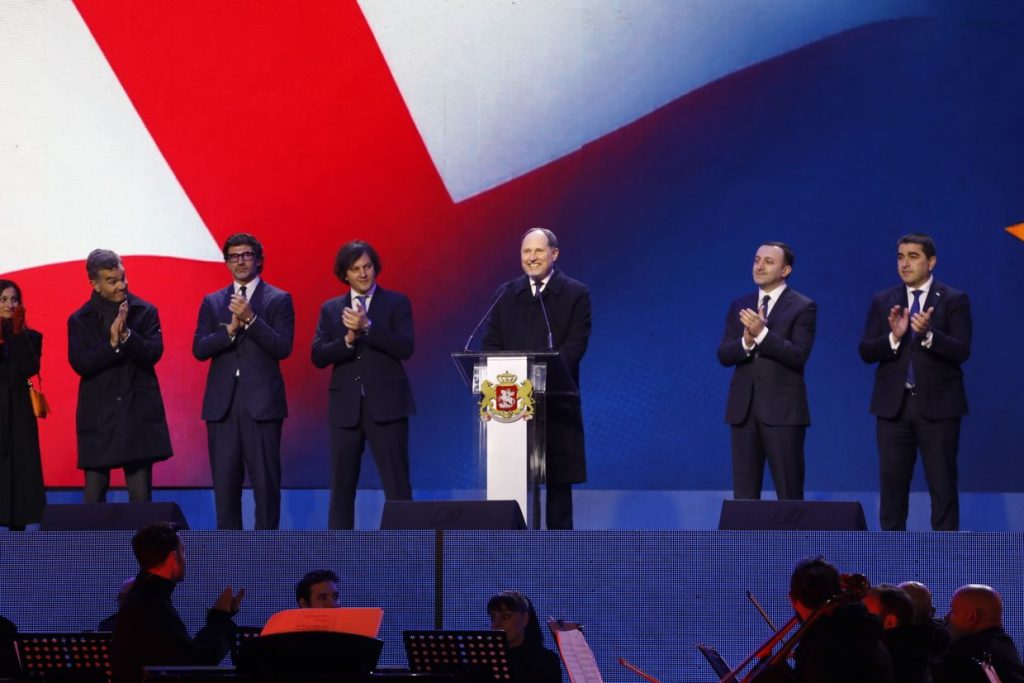Georgia’s ruling Georgian Dream party has sparked controversy with its revived foreign agents law, which would require organizations receiving foreign funding to be labeled as such. Despite widespread protests and the abandonment of the law in March 2023, lawmaker Mamuka Mdinaradze announced plans to reintroduce it with minor changes. The EU’s ambassador to Georgia, Pawel Herczynski, criticized the law, stating that it is incompatible with European values and could hinder the country’s chances of gaining EU candidate status. The law, often referred to as the “Russian law” for its resemblance to similar legislation in Russia, has sparked large-scale protests in the capital city of Tbilisi.
The European Commission’s offer of candidate status to the EU for Georgia in November 2023 has put pressure on the ruling party to address concerns about the foreign agents law. President Salome Zourabichvili, a political opponent of the Georgian Dream party, has also spoken out against the law. Critics argue that the law could restrict the space for civil society organizations and stigmatize those receiving foreign funding. The renewed version of the law has faced backlash not only from within Georgia but also from Western countries, further complicating Georgia’s path towards EU integration.
The foreign agents law has implications beyond just labeling organizations receiving foreign funding. Critics argue that it could lead to a crackdown on civil society and limit freedom of expression in Georgia. The similarity of the law to legislation in Russia has raised concerns about the erosion of democratic values in Georgia. The European Commission’s assessment of the law could have far-reaching consequences for Georgia’s relationship with the EU, potentially affecting its chances of becoming an EU member state.
The revival of the foreign agents law reflects growing tensions between the ruling Georgian Dream party and civil society groups in Georgia. The government’s attempts to pass the law despite widespread opposition demonstrate a disregard for democratic norms and values. The protests against the law highlight ongoing challenges to democracy and freedom of expression in Georgia. The EU’s response to the law will be crucial in determining the future of Georgia’s relationship with the bloc and the prospects for EU integration.
As Georgia navigates the complexities of its relationship with the EU, the foreign agents law has become a focal point of debate and controversy. The ruling party’s persistence in pushing the law forward despite criticism from the EU and civil society organizations raises questions about the government’s commitment to democratic principles. The outcome of the protests and the EU’s response to the law will have significant implications for Georgia’s democratic future and its aspirations of EU membership. The revival of the law serves as a test of Georgia’s commitment to European values and its ability to uphold democratic standards in the face of political challenges.


